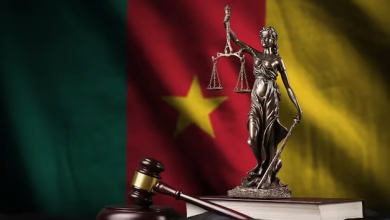The State of Legal Journalism in Africa: Who Tells Our Legal Stories?
By Mawusi El Mensah

In Africa, where justice systems shape the lives of over a billion people, legal journalism remains one of the most underdeveloped sectors in media. Unlike sports, politics, or entertainment, legal matters are often relegated to niche pages—overshadowed, underexplored, and frequently misunderstood. Yet, every legal decision, every judgment, every courtroom drama echoes across society, influencing land ownership, human rights, elections, business deals, and livelihoods.
So, the question arises: Who tells our legal stories? And are they telling them right?
The Reality: Legal Journalism as an Afterthought
Legal reporting in most African countries is trapped in a twilight zone. Mainstream media houses often assign court reporting to junior journalists, some with no legal background, who merely document proceedings without unpacking the legal implications for the public. The courtroom becomes a backdrop for scandal or sensation—rarely a space for civic enlightenment or institutional scrutiny.
From the headlines we see—“High-profile man granted bail,” “Supreme Court rules on election petition,”—it’s evident that most legal news is reactive, selective, and surface-level. Nuance, analysis, and civic education are often missing. Legal institutions and stories that should educate citizens or question power go unnoticed or get distorted.
The Gaps in African Legal Reporting
1. Lack of Specialized Legal Journalists
Few African journalists are trained in law, and even fewer are trained in legal reporting. This gap leads to misinterpretation of court language, poorly contextualized legal developments, and weak investigative follow-up on critical issues.
2. Legal Illiteracy Among the Public
Most citizens encounter the law only when in crisis—be it arrest, land dispute, or family disagreement. Yet, media rarely simplifies legal reforms, explains rights in plain language, or demystifies how the justice system works. Legal journalism should bridge this gap but largely fails to do so.
3. Gender and Human Rights Issues Overlooked
Cases involving domestic violence, child rights, environmental justice, or land grabs are often reported without depth or follow-through. Victims’ voices are muffled, while the systemic failures behind such cases remain unexplored.
4. Focus on Court Drama, Not Legal Systems
African legal reporting is heavily skewed toward courtroom action, especially high-profile cases. Very little is written about judicial reforms, access to justice, customary law systems, or innovations like Alternative Dispute Resolution (ADR).
5. No Continental Legal Media Platforms
Until recently, Africa lacked a media platform solely focused on legal development across the continent. Legal updates were country-specific, often hidden behind paywalls or lost in bureaucratic legal gazettes.
Legal Africa: Changing the Narrative
Legal Africa Magazine emerged to change that—to become a platform where Africa’s legal stories are not just told, but deeply understood, humanized, and shared with power and precision.
Founded on the belief that law is not a luxury but a lived experience, Legal Africa is bridging the gap between legal institutions and the people they serve. Here’s how:
1. Human-Centered Legal Journalism
Legal Africa tells stories that center people, not just institutions. Whether it’s profiling female judges breaking barriers, young lawyers leaving for the diaspora, or communities relying on informal justice systems—our stories are real, relatable, and rooted in the African experience.
2. Pan-African Legal Coverage
We do not see legal systems in isolation. From Nairobi to Lagos, Accra to Kigali, we cover continental trends, legal innovations, landmark judgments, and cross-border case studies—contributing to regional legal integration and comparative knowledge.
3. Access and Education
Through clear, jargon-free writing, Legal Africa explains complex legal issues in plain English. We turn court rulings, policy changes, and constitutional developments into teachable moments, especially for youth and grassroots readers.
4. Investigative Legal Features
We are digging deeper—investigating corruption in the judiciary, the underfunding of legal aid, and the politics behind delayed justice. We don’t just report what happens; we ask why it happens and what can change.
5. Spotlighting Underrepresented Voices
From paralegals in rural areas to female legal pioneers, we spotlight those often ignored in mainstream reporting. We believe their voices are essential to understanding the full spectrum of African justice systems.
A Call for Collaboration: Journalists, Lawyers, and the Media
The future of legal journalism in Africa lies in collaboration. Lawyers must understand the media is not the enemy. Journalists must be equipped to understand the law, not just quote it. Legal educators must bridge academia and real-world practice. And governments must stop seeing legal journalism as a threat and start seeing it as an accountability partner.
Legal Africa is building that bridge—and we invite others to walk with us.
Conclusion: The Power of Our Legal Stories
Law is the soul of a nation—it decides who owns what, who gets punished, who gets protected, and who gets forgotten. If these stories are not well told, our collective consciousness suffers. In a time when misinformation is rampant, and justice feels distant, legal journalism is not optional—it is essential.
Legal Africa is telling those stories with clarity, courage, and care. The only question that remains is: will the continent listen?
Join the movement. Read. Share. Write. Legal Africa is your platform. Your voice. Your justice.
DON’T MISS THS: 94% of Clients Are Online: Why Lawyers Must Embrace New Media in 2025 or Be Left Behind




